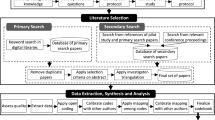Abstract
This article argues that an ethic applying the technology assessment (TA)-method is only feasible as a risk ethic, since the consequences of technical action are ambivalent and uncertain. It first distinguishes possible strategies of justification for a risk ethic, that is (a) deontological, (b) teleological and (c) procedural approaches. On the basis of the critique of both (a) and (b), a central problem for the integration of discourse ethics in the TA-method is highlighted by reverting to a game theory modeling: As it turns out, mechanisms of self-selection undermine the representativity of discourses and thus its legitimation. In view of this dilemma, the article pledges for a complementary approach selectively integrating (a)–(c) into a “provisional moral”.
Resumé
Le présent article affirme qu’une éthique recourant à l’évaluation technologique (TA) n’est possible qu’en tant qu’éthique à risque, puisque les conséquences de l’action technique sont ambivalentes et incertaines. Il distingue en premier lieu les stratégies pouvant justifier une éthique à risque, à savoir une approche (a) déontologique (b) téléologique et (c) procédurale. Sur la base d’une critique de (a) et (b), l’article met en lumière un problème central pour l’intégration du discours éthique dans la méthode de l’évaluation technologique, en utilisant le modèle de la théorie du jeu : les mécanismes d’autosélection sapent la représentativité des discours et par conséquent leur légitimation. Compte tenu de ce dilemme, l’article plaide pour une approche complémentaire intégrant (a)–(c) dans une « morale provisoire ».
Zusammenfassung
Eine Ethik in TA-Verfahren ist nur als Risikoethik möglich, da die Folgen technischen Handelns ambivalent und unsicher sind. Der Artikel unterscheidet zunächst mögliche Rechtfertigungsstrategien für eine Risikoethik, nämlich (a) deontologische (b) teleologische und (c) prozedurale Ansätze. Nach einer kurzen Kritik von (a) und (b) arbeitet der Artikel durch spieltheoretische Modellierung ein zentrales Problem für die Einbindung der Diskursethik in TA-Verfahren heraus: durch Selbstselektionsmechanismen wird die Repräsentativität von Diskursen unterhöhlt und somit ihre Legitimation unterminiert. Deshalb wird vorgeschlagen, die zueinander komplementären Ansätze (a)–(c) in eine „provisorischen Moral” selektiv zu integrieren.







Similar content being viewed by others
Notes
Ropohl 1996, p. 326
These include all utilitarian ethics as well as virtue-ethical concepts. The latter equate the good with the preservation of free action; the former identify the common good with increasing the benefit, which again can be defined in different ways; see Hubig (1993).
Gereck and Suchanek 1999
Kuhlmann 1994, p. 284
Skorupinski and Ott 2000, p. 152
Apel 1994, p. 390
Kuhlmann 1994, p. 285
Hubig 1997, p. 58
Skorupinski and Ott 2000, p. 19
Herms 2000, p. 44. “Open participation is necessary, but not sufficient as a condition to achieve [discursive H.P.] consensus.”
Wagner 2003, p.134
Weinrich 1972
Wagner 2003, p. 138
Saupe 1999
A systematic overview of forms of consensus is given in Renn (1998, p.45).
References
Alexy R (1978) Eine Theorie des praktischen Diskurses. In: Oelmüller W (ed) Normenbegründung, Normendurchsetzung, Paderborn
Apel KO (1994) Die ökologische Krise als Herausforderung für die Diskursethik. In: Böhler D (ed) Ethik für die Zukunft. Im Diskurs mit Hans Jonas, München pp 369–407
Bonß W (1990) Zwischen Emanzipation und Entverantwortlichung—Zum Umgang mit den Risiken der gentechnologie. In: Grosch K et al (eds) Herstellung der Natur? Stellungnahmen zum Bericht der Enquetekommission ‚Chancen und Risiken der Gentechnologie’, Frankfurt a. M., pp 183–205
Gethmann CF (1987) Ethische Aspekte des Handelns unter Risiko. In: VGB Kraftwerkstechnik, vol 67, pp 1130–1135
Gethmann CF, Kloepfer M (1993) Handeln unter Risiko im Umweltstaat, Berlin
Gerecke U, Suchanek A (1999) Pluralismus und seine Folgen für die Ethik der modernen Gesellschaft. In: Rippe K (ed) Angewandte Ethik in der pluralistischen Gesellschaft, Freiburg Schweiz, pp 109–130
Habermas J (1983) Diskursethik—Notizen zu einem Begründungsprogramm.In: idem: Moralbewußtsein und kommunikatives Handeln, Frankfurt a. M., pp 53–126
Herms E (2000) Theologische Ethik und Rechtsbegründung. In: Bondolfi A (ed) Ethik und Gesetzgebung, Stuttgart, pp 43–65
Hubig Ch (1993) Technik und Wissenschaftsethik. Ein Leitfaden, Berlin
Hubig Ch (1997) Die Anerkennungsbasis von Nutzenüberlegungen. Zum Spannungsverhältnis von Akzeptabilität und Akzeptanz. In: Kirch W, Kliemt H (eds) Rationierung im Gesundheitswesen, Regensburg, pp 56–71
Hubig Ch (2001) Ethik der Technik als provisorische Moral. In: Honnefelder L, Streffer C, Jahrbuch für Wissenschaft und Ethik, 6, Berlin/New York, pp 179–201
Kettner M (2003) Diskursethische Aspekte der Dresdner Konsensuskonferenz, In: Schicktanz, S, Naumann J (eds) Bürgerkonferenz, Streitfall Gendiagnostik, Opladen, pp 99–108
Kuhlmann W (1994) Prinzip Verantwortung versus Diskursethik. In: Böhler D (ed) Ethik für die Zukunft. Im Diskurs mit Hans Jonas, München, pp 277–303
Luhmann N (1990) Risiko und Gefahr. In: idem (ed) Soziologische Aufklärung 5. Konstruktivistische Perspektiven, Opladen
Luhmann N (1991) Soziologie des Risikos, Berlin/New York
Renn, O (1998) Die Wertbaumanalyse. Ein diskursives Verfahren zur Bildung und Begründung kollektiv verbindlicher Bewertungskriterien, In: Holderegger A (ed) Ökologische Ethik als Orientierungswissenschaft. Von der Illusion zur Realität, Freiburg, Switzerland, pp 34–67
Ropohl G (1994) Das Risiko im Prinzip Verantwortung. In: EuS vol 5, pp 99–119
Ropohl G (1996) Ethik und Technikbewertung, Frankfurt a. M
Saupe S (1999) Ethik und Praxis der Technikgestaltung, In: Grunwald A, Saupe S Ethik in der Technikgestaltung. Praktische Relevanz und Legitimation, Berlin/New York, pp 95–117
Skorupinski B, Ott K (2000) Technikfolgenabschätzung und Ethik. Eine Verhältnisbestimmung von Theorie und Praxis, Zurich
Wagner B (2003) Prolegomena zu einer Ethik des Risikos. Grundlagen, Probleme, Kritik, Düsseldorf
Weinrich H (1972) System, Diskurs, Didaktik und die Diktatur des Sitzfleisches, Merkur vol 8, pp 801–812
Acknowledgments
I would like to thank Andre Betzer, Frank Riedel, Daniel Wiesen (all University of Bonn) and Thomas Rochner (Düsseldorf) for their helpful comments and constructive criticism.
Author information
Authors and Affiliations
Corresponding author
Rights and permissions
About this article
Cite this article
Pontzen, H. Discourse ethics in TA procedures: a game theory model. Poiesis Prax 4, 219–230 (2006). https://doi.org/10.1007/s10202-006-0024-5
Published:
Issue Date:
DOI: https://doi.org/10.1007/s10202-006-0024-5



